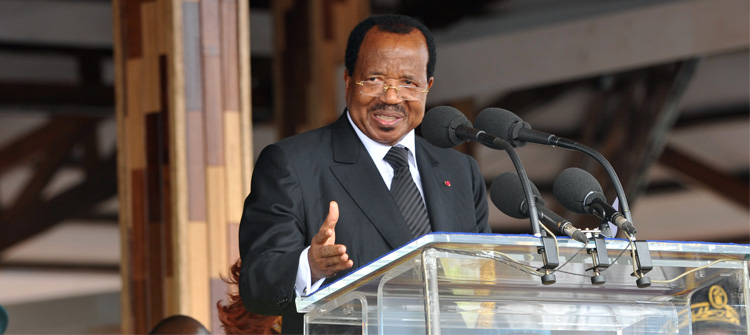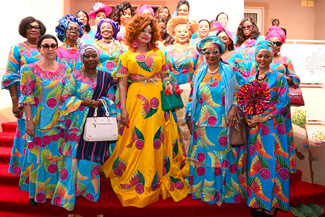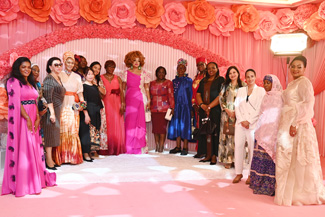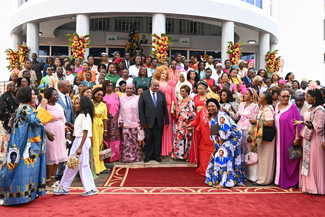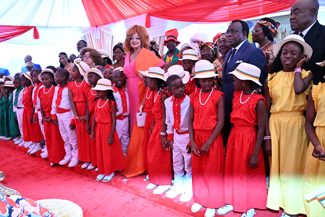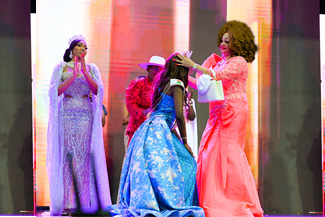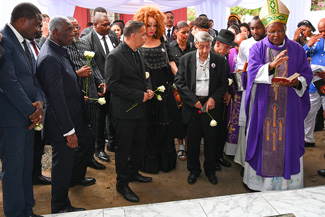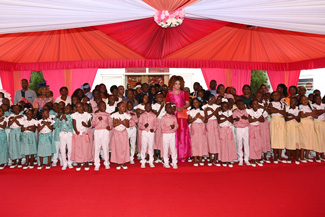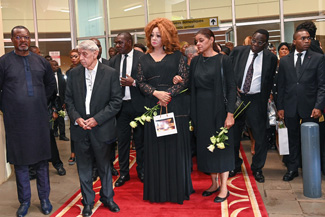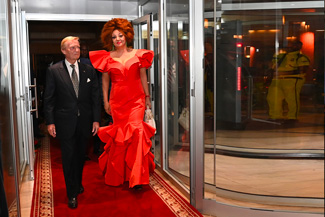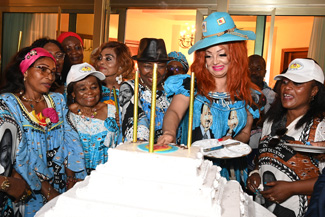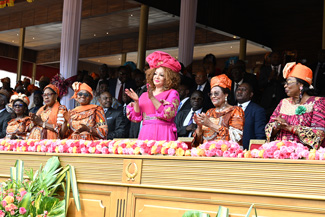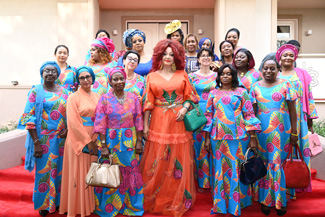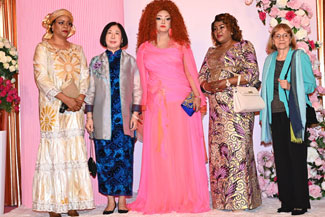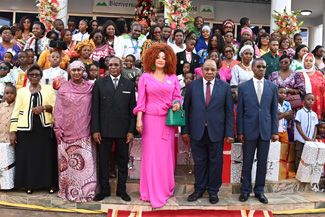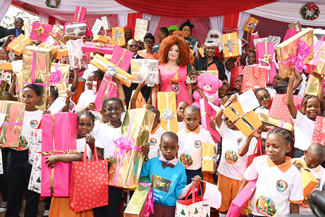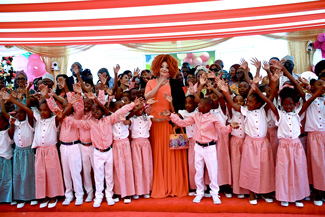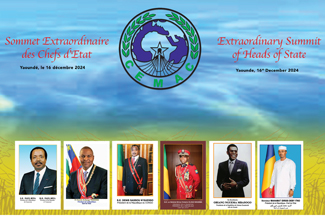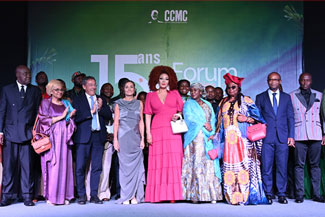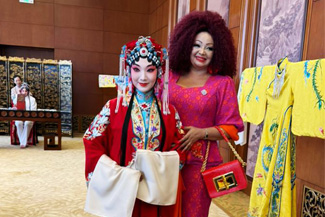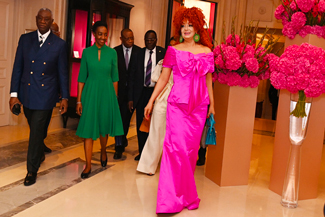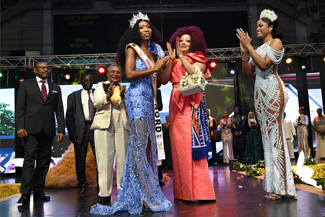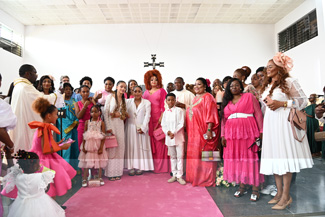•The President of the Senate,
•The President of the National Assembly,
•H.E. The Ambassador of France to Cameroon,
•Distinguished Members of the Diplomatic Corps,
•The Governor of the Littoral Region,
•The Senior Divisional Officer for Wouri,
•The Government Delegate to the Douala City Council,
•Honourable Members of Parliament,
•Political, traditional and religious authorities,
•The elite and population of the Littoral Region,
•Distinguished guests,
•Ladies and Gentlemen,
We are here today in Douala to lay the foundation stone of the second bridge over the Wouri River.
First, let me say that I am very pleased to meet you once more in your city, so industrious, the heartbeat of our country’s economy, the meeting place and melting pot of our populations.
Permit me to thank the Government Delegate to the Douala City Council for his words of welcome and the kind words he has spoken to me and my wife. I cannot forget to thank the Minister of State, Esso, who found the right words to describe the moments I shared a few decades ago with the notables of this region. I thank him sincerely as well as the traditional leaders of Littoral for the ritual which may appear insignificant, but which is initiatory, and for their gifts.
Naturally, I also thank the dynamic people of the Littoral Region, particularly those of Douala and its environs, for their exceptional warm welcome, for their commitment and loyalty. I would like to seize this opportunity to congratulate the people of Douala and, through them, all the people of Cameroon for maintaining calm, serenity and maturity during the recent elections.
I cannot forget to thank the personalities that have honoured us with their presence at this ceremony.
• Ladies and Gentlemen,
The construction of a bridge is always an important task. Indeed, a bridge is a symbol. It helps to link two banks of a river or an arm of the sea, to span a valley or a cliff. In short, it helps to surmount an obstacle to the movement of people and goods. It is a means devised by man to control nature.
But a bridge is also a landmark on a map that identifies with a particular city, like the Tower Bridge in London or the Pont Neuf in Paris. Nowadays, bridges are engineering structures that reflect technological progress like the Golden Gate Bridge in San Francisco or the Tancarville Bridge over the Seine.
The case in point involves all these aspects, although the immediate objective is to facilitate road and rail traffic between the two banks of the Wouri River. Since the existing bridge can no longer bear the ever-increasing volume of traffic, under the best conditions, it became necessary to build a second bridge. It will help to ease trade between the economic capital and the regions situated in the west of the Wouri River. Given that 80% of food products intended for Douala cross the Wouri River from West to East, as well as trade in other goods in both directions, of course, it is necessary to develop this passage.
The utilitarian aspect of the construction of this second bridge does not stop us from hoping that it will, like the famous structures I have just mentioned, be an engineering structure whose attractiveness will win it global fame. In this regard, let us put our trust in the architects and the builder, and in the Minister of Public Works.
The construction of the second bridge over the Wouri River is part of major infrastructure to facilitate transportation across our country. When supplemented by the upgrading of the east and west entry roads to Douala, crossing our economic metropolis will be easier and faster, thus saving time and enhancing the competitiveness of our companies. In more general terms, this bridge will strengthen Douala’s position as the main economic platform of our country and sub-region.
Permit me to outline the main, albeit not too technical features as those presented by the Minister of Public Works, of the structure whose foundation stone will be laid today, to give you an idea of its magnitude. The bridge will be more than 800 metres long, with five traffic lanes and two railway lines, representing a right-of-way of about 25 metres. Two kilometres of access roads will link it to the Douala arterial system. The existing bridge, which is at the end of its life-span will, it must be pointed out, be reserved for pedestrians and two-wheeled vehicles, thereby facilitating their movement. It will therefore be renovated to guarantee the safety of users.
For a long time, the state of our road network has been an impediment to our economy. In recent years, it has been significantly improved. I would like to take this opportunity to confirm that other major road works will soon be launched. These include the first phase of the new Yaounde – Douala highway, the Kumba–Mamfe road, the continuation of work on the Ring Road, the rehabilitation of two sections of the Garoua–Kousseri road and the second section of the Foumban–Manki road as well as the completion of the Meïganga–Ngaoundere road section.
Thus, our cities and main production zones will, in the short and medium term, be linked to the Douala, Limbe and Kribi ports by a modern road network. It is easy to imagine the resultant benefits this will have for our agriculture and industry and, of course, our economy in general.
This is only a part of our infrastructure development programme which is vital to our country’s modernization. Without going into detail, I will recall the facilities whose construction is in progress or planned in the area of energy, the development of our coastline in Kribi or Limbe, the construction of school and university, health and social housing facilities.
Yes, with every passing day, Cameroon is becoming the “vast construction site” I told you about some time ago.
Before I conclude, I want to express my gratitude to France, one of our traditional partners whose assistance over the past decades has remained constant and significant. I would also like to extend my sincere appreciation to the French Development Agency which has supported our efforts to build a second bridge over the Wouri River and continues to assist us in various domains within the framework of the Debt Reduction and Development Contract (C2D).
• Ladies and Gentlemen,
Each bridge, each road, each hospital, each school, each low-cost house is a further step towards modernity and, ultimately, towards an emerging nation. This goal that we have set ourselves does not concern the Government alone. It is everybody’s business. Everybody, in his/her position in our society, can and should contribute to achieving this goal. Together, let us build a bridge towards a better future for our country, no matter the odds.
Thank you for your kind attention.
